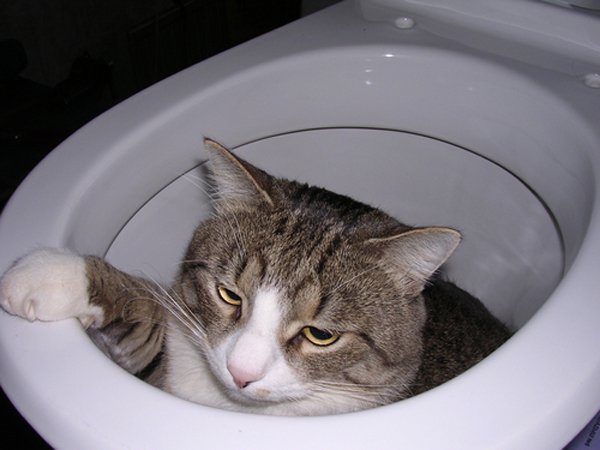Essential Reasons Why Animal Waste Should Never Be Flushed Down the Toilet
Essential Reasons Why Animal Waste Should Never Be Flushed Down the Toilet
Blog Article
How do you actually feel with regards to 10 Things You Should Never Flush Down The Toilet?

When it concerns dealing with waste, particularly animal waste, many individuals typically turn to the hassle-free alternative of flushing it down the toilet. Nevertheless, this relatively simple service can have serious effects for the environment and public health. In this article, we'll discover why flushing animal waste down the toilet is a negative concept and give alternative approaches for proper disposal.
Intro
Correct waste disposal is essential for maintaining environmental sustainability and public health. While it might seem harmless to flush animal waste down the commode, it can result in different problems, both for the atmosphere and human well-being.
Dangers of flushing animal waste
Ecological effect
Flushing animal waste introduces unsafe microorganisms and pathogens into rivers, which can negatively impact marine communities. These virus can infect water sources and damage marine life, interfering with delicate ecological communities.
Public health issues
Animal waste contains damaging bacteria such as E. coli and Salmonella, which can present major wellness risks to human beings. Flushing animal waste down the toilet can infect water supplies, bring about the spread of conditions and infections.
Alternatives to flushing
Instead of purging pet waste down the toilet, there are numerous different disposal approaches that are much more environmentally friendly and sanitary.
Composting
Composting animal waste is an environmentally friendly method to get rid of it. By composting, organic matter is broken down into nutrient-rich soil, which can be used to feed yards and plants.
Garbage dump disposal
Getting rid of pet waste in a landfill is an additional option. While not as environmentally friendly as composting, it is a more secure alternative to flushing, as it avoids the contamination of water resources.
Family pet garbage disposal systems
There are specialized pet dog waste disposal systems offered that securely and hygienically take care of animal waste. These systems often make use of enzymes to break down waste and eliminate odors.
Steps to appropriate animal waste disposal
To make certain proper disposal of pet waste, follow these actions:
Scooping and bagging waste
Regularly scoop and bag pet waste making use of biodegradable bags. This protects against waste from contaminating the atmosphere.
Making use of assigned waste containers
Dispose of bagged animal waste in assigned waste bins, such as compost bins or garbage dump bins. Avoid flushing it down the toilet at all expenses.
Cleaning litter boxes and pet areas on a regular basis
Regularly tidy can and pet locations to avoid the accumulation of waste and germs. Usage pet-safe cleansing items to preserve hygiene.
Benefits of proper disposal methods
Adopting correct disposal techniques for animal waste uses a number of benefits:
Reduced environmental pollution
Proper disposal approaches minimize the threat of environmental pollution, safeguarding rivers and ecosystems from contamination
Lessened danger of water contamination.
By avoiding flushing pet waste down the commode, the threat of water contamination is substantially reduced, guarding public health.
Improved cleanliness and health
Correct disposal methods promote much better hygiene and health, developing a more secure setting for both human beings and pets.
Conclusion
In conclusion, purging pet waste down the toilet is unsafe to the atmosphere and public health. By taking on different disposal methods and adhering to proper waste management practices, we can lessen the adverse influence of animal waste and add to a cleaner, much healthier world.
What To Do With Dog Poo – The Do's And Don'ts Of Disposing Of Faeces
Dog poo bins
Some councils provide dedicated dog waste bins in popular dog-walking areas that can take dog poo that has been bagged but you can legally dispose of dog waste in any public litter bin, as long as it is securely bagged. This also applies to your wheelie bin at home.
Do not flush
Water companies do not recommend flushing dog faeces down the toilet because certain parasites can survive the water processing treatment and are potentially harmful to humans. You should also never consider flushing dog poo that has been bagged down the toilet as the bags will not break down and instead create severe blockages in the sewage system.
In the woods
The Forestry Commission promotes a ‘stick and flick’ method for dealing with waste in the woods. This means finding a stick and using it to flick any poo from off the path so that it is out of the way of other walkers. You could also bury it as long as it is not in an area where there might be livestock.
Livestock
Parasites found in dog poo can be transmitted to livestock if they inadvertently eat infected faeces that has been left on grazing land. This could result in the death of sheep or abortion in cattle so you should always make sure you pick up your dog’s waste in fields where livestock could be present.

We had been made aware of that report on Why you should never flush dog poop down the toilet through someone on another site. Feel free to take a moment to distribute this write-up if you liked it. Thank you for being here. Return soon.
Details Here Report this page